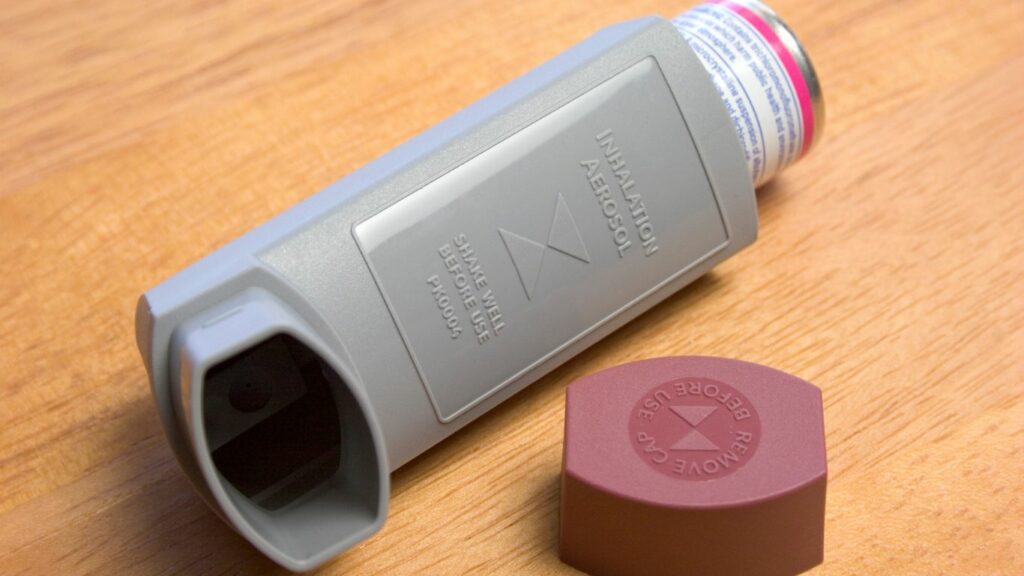Huffing: Abuse Symptoms and Warning Signs

Chronic inhalant abuse, or huffing, is a dangerous habit and can have short- and long-term negative health effects. The abuse of inhalants is one of many substances use disorders that affects the teenage population due to easy access to common household items, like hair spray, spray paints, and other chemicals and solvents. If you think one of your loved ones is showing signs of inhalant abuse, there are addiction treatment resources you can take advantage of at DayBreak Treatment Solutions. Give us a call today to find out more about our substance abuse treatment programs.
What is Huffing?
Huffing is the slang term for inhalant abuse, which is the practice of inhaling the fumes from household products and some industrial strength chemicals. Inhalant abuse is frequently done by teenagers, as it is a basically free way to get a quick high. Huffing the fumes common from common household products like glues, hair spray, lighter fluid, and other items produces an effect on the same level as alcohol.
What are Inhalants?
Inhalant abusers will huff the fumes of many household products. Commonly abused items include lighter fluid, nail polish removers, hair spray, paint thinner, spray paints, and other chemical products. Almost any common household item in the cleanser, glue, chemical remover, and paint category can be used. Experimentation among inhalant abusers is frequent, as there’s always a new item to try for free lying around the house.
Call Daybreak Treatment Solutions today at (844) 695-0083 for help in overcoming your addiction.
How can you tell if someone is high huffing?
Since teenagers are the most common inhalant abusers, parents, teachers, and other authority figures can be on the lookout for certain signs, if they think one or more adolescents are abusing inhalants. A few of the inhalant abuse signs and symptoms are as follows:
- Red eyes
- Runny nose
- Unusual smelling breath
- Paint or stains on clothing or face
- Loss of appetite
- Drunken appearance
- Anxiety
- Sores around mouth
How does sniffing glue get you high?
The chemicals in glue, paint thinner, and other household chemicals affect the brain and produce the same feelings of being high from taking depressants, sedatives, or alcohol. In addition to glue, some fragrances are used for huffing and can cause the heart to beat faster. In this case, inhalant abuse signs and symptoms would be jitters and jumpiness.
Does sniffing glue cause permanent brain damage?
According to the National Institute on Drug Abuse (NIDA), sniffing glue and other items like nail polish removers can cause brain damage, heating loss, and kidney and liver damage over the long term. Although it is not as common as with other commonly abused substances, like opioids or stimulants, chronic inhalant abusers can become addicted as one of the effects of inhalant abuse.
Why is there such a strong stigma around huffing petrol?
There is a strong stigma regarding huffing petrol due to the environmental, family and cultural components associated with this particular form of inhalant abuse, as opposed to more common household items like hair spray, paint thinner, and other types of inhalants. Gas sniffing causes some of the same signs and symptoms, along with others specific to its chemical makeup. They include:
- Visual hallucinations
- Changes in consciousness
- Euphoria
- Nystagmus
- Dizziness
- Weakness
- Tremors
Is it possible to get high from sniffing markers?
According to the National Institute on Drug Abuse (NIDA), Yes, some permanent markers do contain chemicals similar to solvents like paint thinner, nail polish removers, and other types of inhalants. They can produce the same types of highs as these products.
Short and Long-Term Effects of Inhalant Drugs
One of the long-term effects of inhalant abuse is brain damage, which is reason number one why it should be avoided. In some cases, “sudden sniffing death” can occur, which is caused by heart failure, acute asphyxiation or other negative effects. Short term effects included slurred speech and other cognitive and motor skill impairment. If you know someone who is abusing inhalants, there is help. Call us today at (844) 695-0083 to find out more regarding treatment for any substance use disorders and inhalant addiction.
